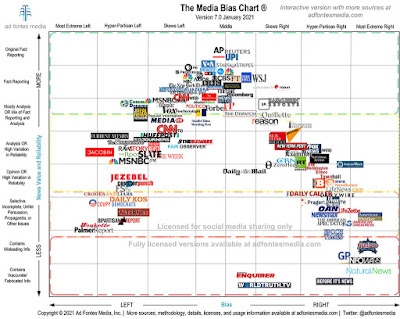Dominic Bush
db583018@ohio.edu
Journalism and The World
Humans have an inherent want for the truth. Lying makes people mad, and misinformation leads people to conclusions and down paths that previously were impossible to achieve. No information is more relevant and relied upon than that of journalism. Journalism has been and will continue to be the fastest and most prevalent source of information in our modern world.
Why Listen?
According to "The Elements of Journalism" by Bill Kovach and Tom Rosenstiel, "We need news to live our lives, protect ourselves, bond with each other, and identify friends and enemies." This quote puts into perspective why we need truthful, accurate journalism, and why ethically it is important to tell the full truth.
When misinformation is given out as fact, it puts Kovach's and Rosenstiel's reasons for needing news in jeopardy. We cannot fully live our lives if we are in constant fear; we cannot protect ourselves if we don't know what is coming to harm us; we cannot bond with each other if we don't know what to bond over; and we cannot identify our enemies if there is not one specific enemy being fought against.
This is why accurate journalism is so important. Otherwise it damages the society around the journalist when their information is wrong or misleading. It can turn people against each other or force people into living in fear. In our modern world, one of the biggest problems we face in journalism is biased reporting.
According to the American Press Institute, journalistic objectivity calls for journalists to swallow their bias or pride to test their information as fact, and that the bias will not affect the accuracy or credibility of the information.
In our modern world of journalism, this seems to be a struggle. We see inherent bias every day in media that is mainstream and promoted to the masses. News companies have become politically aligned and charged; and patrons of the news choose sides, pitting person against person within a small area.
Picture source: adfontesmedia.com
In chapter 10, Kovach and Rosenstiel explain that misinformation and bias can ruin your career as a journalist. They tell the account of a young journalist named "Blair". After many reports from this journalist, it was found that he was making up stories, lying about eyewitness accounts, and plagiarized other journalists' work. He enjoyed a rise to the top before finally being brought down, but this trend is all too true in today's journalism.
There are journalists that have made an entire career from false, fear-mongering journalism. A great example of this in our modern age is that of "Info Wars", and more specifically the face of their reporter Alex Jones. His career has been making fun of tragedy, spreading lies, and making up conspiracies, yet he has profited from these lies.
According to an article by Max Gorynski, "The resulting states of collective misunderstanding are of supreme value to news outlets, for they can exercise the principle of infinite jest on their readers: plying them with one set of concerning information to incentivize them to return the next day in hope of being delivered some more helpful numbers and better news."
There is a monetary and power gain for media companies to release misinformation. They will gain more public traction by putting out more newsworthy stories. It is imperative that individual journalists swallow their pride and bias to bring down the media monopoly from continuing to use its audience as a "get-rich-quick" scheme.
How to Fix the Problem
Kovach and Rosenstiel say that "In the end, journalism is an act of character." This is the dilemma for journalism nowadays. With the internet and age of technology, anyone can be a journalist, and there are basically no repercussions for false information. To be a good journalist, you must be correct, unbiased, and timely; which are common struggles for mainstream journalists today.
Truth is needed in society, and journalists are needed to provide these truths. To be a good journalist your intentions and information need to be good and tested. These small, yet selfless acts will propel our world to a more accepting, prepared, and informed society.

No comments:
Post a Comment